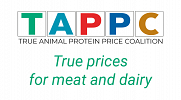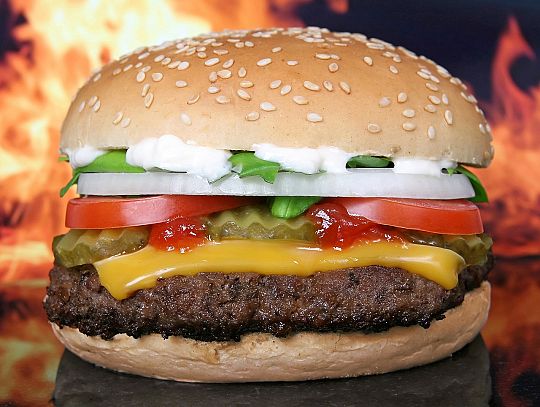Meat taxes can be designed with public support, benefiting low income groups
Meat taxes in countries with high overconsumption levels can be designed in a way that most consumers support a policy package recycling tax revenues for making healthy, climate friendly food cheaper and pay low income groups. This is shown by research and consumer polls commissioned by TAPP Coalition, to be presented today 5 December 2023 at 07.30 h CET by the True Animal Protein Price (TAPP) Coalition in a livestreamed and recorded Press Conference at COP 28, the UN Climate Conference.
TAPP Coalition’s director, Jeroom Remmers, gave a speech with a presentation titled Realising 2030-2040 Climate Goals with Fiscal Incentives for Agri-Food: With Public Support, Without harming low income groups. In this speech Jeroom Remmers pointed to the unsustainable and unhealthy effects of dairy and meat, and how the costs of these effects are externalised. He argues for fiscal incentives to internalise these environmental, social, and health costs. Furthermore, he points to recent research showing that fiscal incentives for agri-food, specifically a higher Value Added Tax for meat and dairy, enjoys public support and can be implemented without any harm to low income groups in for instance Europe.
The current meat consumption levels in countries like Europe, USA and China are not in line with their own climate goals for 2030 and 2040, thus showing the need for extra measures to reduce meat consumption.[i] [ii] [iii]
Popular Support
Not only is the VAT measure needed for our climate, it also enjoys public support in several western European countries, such as the Netherlands, France, and Germany. An IPSOS consumer survey shows that in the Netherlands 57% is in favour of 0% VAT on healthy and sustainable foods and 15% VAT increase on conventional meat and sugary drinks. In France this number is 65% and in Germany 58%.[iv] Similar results are shown in a representative consumer poll research from DVJ insights from 2021.[v]
Benefits to Low Income Groups
Lastly, it is often assumed that low income groups will be disproportionately affected by an increase of the Value Added Tax of unsustainable and unhealthy foods. This is evidently also the case if no other measures are taken.[vi]However, recent research, as well as TAPP Coalition’s own calculations have shown that combined with a decrease in VAT for sustainable and healthy products this regressive effect is mostly countered, and could potentially even become a net-win for low income consumers, depending on the amount of products of which the VAT will be lowered. Furthermoree, if the lower VAT is combined with a lumpsum compensation to low income groups, the measure actually increases equality overall.[vii]
Not for publication
More information: https://tappcoalition.eu
Jeroom Remmers, director TAPP Coalition
Phone: 0031 6 2240771
Email: info@tappcoalitie.nl
More information on events hosted by TAPP Coalition here.
[i] Greenpeace European Unit. (2020). EU climate diet: 71% less meat by 2030 - Greenpeace European Unit.
[ii] European Court of Auditors, “Special Report: Common Agricultural Policy (CAP) and Climate,” 2016,
[iii] United Nations, “Food and Climate Change: Healthy Diets for a Healthier Planet | United Nations,”
[iv] IPSOS. (2023). Results Ipsos Survey – EU. True Animal Protein Price Coalition. https://www.tappcoalition.eu/images/Ipsos-report-EU-foodprices-final-min-1684314038.pdf
[v] Veronika, V. (2021, April 6). Support for meat tax – Study DVJ Insights & TAPP Coalition - DVJ Insights. DVJ Insights. https://www.dvj-insights.com/support-for-meat-tax-study-dvj-insights-tapp-coalition/
[vi] Klenert, D., Funke, F. & Cai, M. Meat taxes in Europe can be designed to avoid
overburdening low-income consumers. Nat Food 4, 894–901 (2023).
https://doi.org/10.1038/s43016-023-00849-z
[vii] Klenert, D., Funke, F. & Cai, M. Meat taxes in Europe can be designed to avoid
overburdening low-income consumers.


